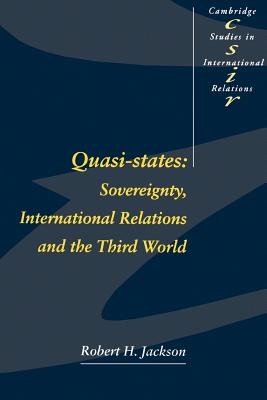
- We will send in 10–14 business days.
- Author: Robert H Jackson
- Publisher: Cambridge University Press
- ISBN-10: 0521447836
- ISBN-13: 9780521447836
- Format: 15.1 x 22.7 x 1.7 cm, softcover
- Language: English
- SAVE -10% with code: EXTRA
Reviews
Description
Robert Jackson examines the birth and survival of Third World nations since the end of the Second World War. He describes these countries as "quasi-states," arguing that they exist more by the support and indulgence of the international community than by the abilities and efforts of their own governments and peoples. He investigates the international normative framework that upholds sovereign statehood in the Third World. This he calls "negative sovereignty" and contrasts it with what he sees as the "positive sovereignty" that emerged in Europe along with the modern state. Within this structure, he examines how negative sovereignty arose, and its mechanisms and consequences for both international politics and the domestic conditions of quasi-states. He concludes by assessing the future of quasi-states and the institution of negative sovereignty.
EXTRA 10 % discount with code: EXTRA
The promotion ends in 19d.23:29:45
The discount code is valid when purchasing from 10 €. Discounts do not stack.
- Author: Robert H Jackson
- Publisher: Cambridge University Press
- ISBN-10: 0521447836
- ISBN-13: 9780521447836
- Format: 15.1 x 22.7 x 1.7 cm, softcover
- Language: English English
Robert Jackson examines the birth and survival of Third World nations since the end of the Second World War. He describes these countries as "quasi-states," arguing that they exist more by the support and indulgence of the international community than by the abilities and efforts of their own governments and peoples. He investigates the international normative framework that upholds sovereign statehood in the Third World. This he calls "negative sovereignty" and contrasts it with what he sees as the "positive sovereignty" that emerged in Europe along with the modern state. Within this structure, he examines how negative sovereignty arose, and its mechanisms and consequences for both international politics and the domestic conditions of quasi-states. He concludes by assessing the future of quasi-states and the institution of negative sovereignty.


Reviews